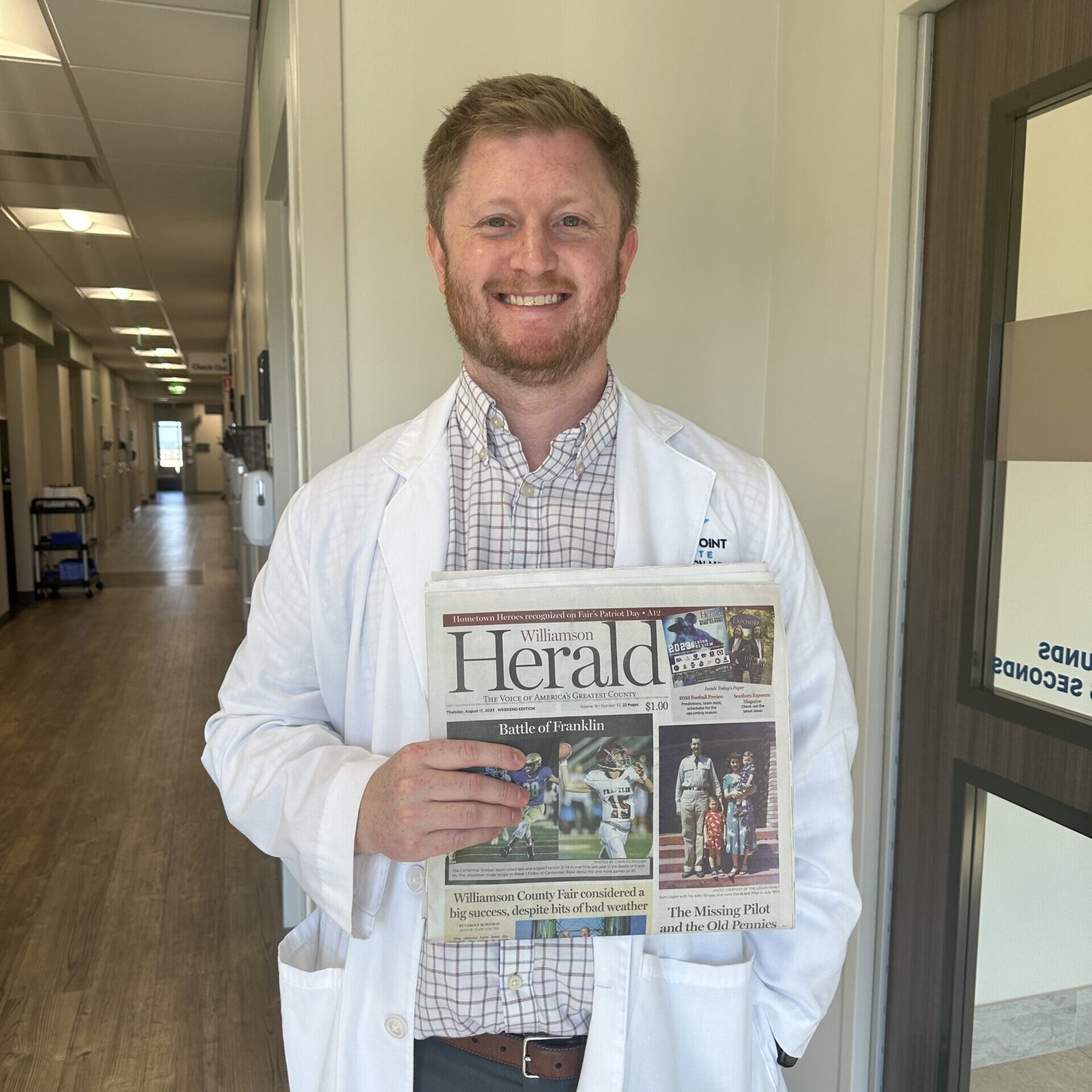
22 Aug Concussions 101: Back to the basics with Dr. Richard Gibson
Originally published in the Williamson Herald –
As a new school year begins, students are heading off to their first day of classes and returning to their busy schedules of homework, extracurricular activities, and fall sports like volleyball, football and cross country. Although all sports present a risk of injury, high-contact sports create a greater risk of head injuries like concussions.
While injuries of this kind can seem intimidating, it is important to be aware, be prepared and know the signs. Richard Gibson, M.D., sports medicine physician at Bone and Joint Institute of Tennessee, urges athletes, coaches and parents to get back to the basics surrounding concussion protocol and recovery.
“By definition, a concussion is a form of a mild traumatic brain injury that presents with a variety of symptoms,” Dr. Gibson said. “An injury like this creates functional issues within the brain as opposed to structural issues.”
With an abundance of easily accessible information about concussions, it’s easy to form misconceptions about the injury, Dr. Gibson said.
“Just because you didn’t get knocked out doesn’t mean you didn’t suffer a concussion,” Dr. Gibson explained. “Fewer than 10% of people with concussions lose consciousness at the time of injury.”
Even a simple slip-and-fall or getting hit with an errant ball can result in head trauma, Dr. Gibson said.
Wearing the appropriate safety equipment and using proper technique can help combat potential concussions. Although concussions are common in any sport, it is crucial to take safety measures in high-contact sports. This could include wearing the correct protective equipment, such as helmets and padding for football or ensuring padding is used on poles and nearby walls for volleyball.
However, knowing the signs in the event that you do suffer a concussion is critical. “In general, a concussion is any head injury that causes symptoms,” said Dr. Gibson. “If you experience headaches, blurry vision, dizziness, nausea or sensitivity to light or noise, you should get evaluated for head trauma.”
Serving as a concussion specialist, Dr. Gibson works with athletic trainers in Williamson County Schools to assess and treat concussions in athletes. Whenever an athlete suffers a hard hit, the athletic trainers are available to do sideline evaluations, making sure the patient is alert and oriented. If a concussion is suspected, athletes are referred to Dr. Gibson at the Bone and Joint Institute for further neurological evaluation, such as balance exams and eye movement testing.
“We also offer online ImPACT testing for our student athletes,” said Dr. Gibson. “We compare these results to a baseline test taken at the beginning of the season to detect deficits in visual memory and reaction time. This gives a more accurate representation of the level of head trauma suffered by the individual.”
Although more common in sports, concussions can happen at any age, and recovery time depends on the individual. The time it takes to heal can range from a few weeks to a few months.
“The treatment for a concussion is physical and cognitive rest,” said Dr. Gibson. “While it’s not necessary to sit in a completely dark room, you should avoid overstimulation like excessive light or sound.”
To further help with recovery, the providers at Bone and Joint Institute work with patients to communicate with coaches and staff and create accommodations in school or in the workplace.
“The most important thing is to limit exposure to repeated head trauma,” said Dr. Gibson. “Although we do not have long-term research, we do know that there are some cumulative effects from multiple concussions.”
But if treated correctly, Dr. Gibson said most concussions are manageable.
“If you hit your head or feel like you may have a concussion, do not hesitate to get evaluated by a physician,” he said. “It is always better to be safe than sorry.”
To learn more or schedule an appointment at Bone and Joint Institute of Tennessee, visit https://boneandjointtn.org/.
